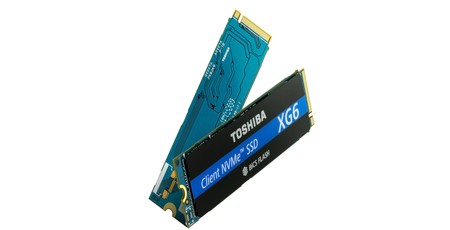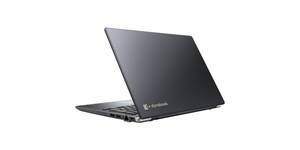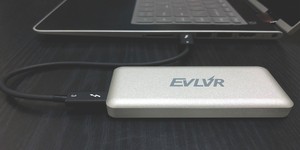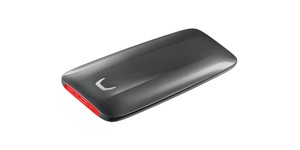Toshiba launches BiCS4-based M.2 SSD family
July 24, 2018 | 10:07
Companies: #toshiba #toshiba-memory-corporation #western-digital

Toshiba has announced the launch of its first solid-state storage devices based on the BiCS4 96-layer three-dimensional NAND flash technology it developed alongside Western Digital, in the form of the XG6 M.2 family.
Announced back in June 2017 and recently expanded with a high-capacity quad-level cell (QLC) variant, Bit-Cost Scalable Generation 4 (BiCS4) uses a 96-layer three-dimensional stacked-cell structure to create high-capacity high-performance solid-state memory dies for storage products. Offering a 40 percent capacity increase over the 64-layer BiCS3, both in triple-level cell (TLC) form, BiCS4 promises faster, bigger, and cheaper SSDs - but at the time neither Toshiba nor Western Digital would commit to commercial availability.
Now, though, Toshiba spin-out Toshiba Memory Corporation (TMC) has confirmed that 'sample shipments' of a BiCS4 TLC M.2-format solid-state drive (SSD) have begun to original equipment manufacturers (OEMs), with volume shipments expected to begin towards the end of the year.
Dubbed the XG6 and aimed at mainstream desktop and laptop devices, and to be joined by self-encrypting versions focused on data centre and enterprise customers, the new family of storage sticks is based on the PCI Express 3.0 (PCIe 3.0) four-lane and Non-Volatile Memory Express (NVMe) 1.3a connectivity standards. According to TMC's internal testing, the drives are capable of 2,960MB/s sequential write and 3,180MB/s sequential read, 365,000 random write and 355,000 random read input/output operations per second (IOPS), and draws just 4.7W in active and 3mW in stand-by modes.
TMC has confirmed three initial entries in the family: 256GB, 512GB, and 1024GB, all of which use a single-sided M.2 2280-S2 form factor and will be offered in TCG Opal 2.01 self-encrypting versions as well as standard variants. Pricing and retail availability, however, have not been provided.

MSI MPG Velox 100R Chassis Review
October 14 2021 | 15:04








Want to comment? Please log in.